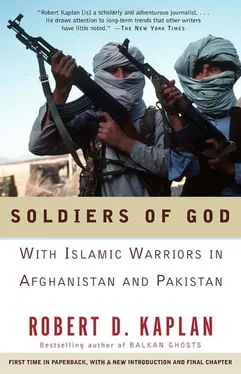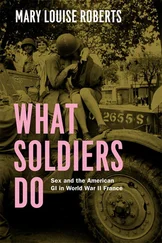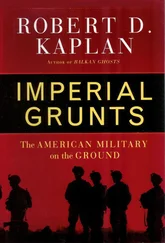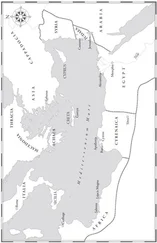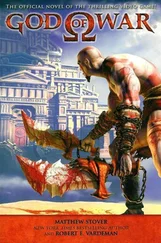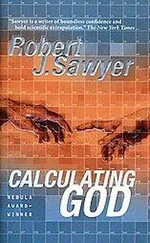We left the all-weather road halfway between Quetta and the border. Suddenly we were bouncing as if on a trampoline. The air inside the Land Cruiser was filled with a fine dust, though all the windows were shut. The tires kicked up a dust cloud so thick that our headlights did more harm than good, for light thrown against the dust cut down visibility. Off the track, I noticed that the dust had collected in high ridges, reminding me of photographs of the moon. I had seen dust this bad once before, in Tigre in northern Ethiopia. There the soil was eroded from drought and the neglect spawned by civil war. Here in Baluchistan we were in a desert where nothing had ever grown. It felt as though we were scratching our way across the burned, powdery crust of a giant pie that had been left too long in the oven.
“This is Baluchistan, but we call it Powderistan,” Akbar joked.
After driving northeast along the border for several hours we crossed into Afghanistan at a point where NIFA had built a small, permanent camp for mujahidin coming in and out of the war zone. This was where the guerrillas picked up their weapons.
It was 2 a.m. and freezing cold as only the desert can be. The starscape was out of a fairy tale. There was no room in any of the mud huts so we slept outside, our faces covered in dust. I crawled deep into my sleeping bag, shaking from the cold. Akbar and the others had already fallen asleep. Away from their air-conditioned offices, the “Gucci muj” turned out to be just as tough as the Khalis boys, and in the case of the driver, just as reckless too. I wondered if back in Quetta and Peshawar their pretensions to fashion were merely an effort to look Western. Since we foreigners required “noble savages” to feed our own fantasies, what we really held against the “Gucci muj” was their yearning to be like us.
My first sight on awakening the next morning was the black NIFA flag snapping in the wind against the toneless predawn sky.
“Why is it black?” I asked Akbar.
“Because we are in mourning. Our freedom is lost,” Akbar explained.
The flag of Khalis’s Hizb-i-Islami was green, the symbol of Islam, the warrior faith of the future that seemed to give its fighters a kind of superhuman strength. The truth of each party was in the color of its flags, I thought: NIFA looked backward, lost in mourning over the past.
Over the border in Afghanistan, this desert region’s name changed from Baluchistan to Arghastan. The landscape changed too, from deathlike to more deathlike. We were still scratching our way across the same greasy pie, but now the crust was a mere chalky film that covered our faces with white inside the Land Cruiser. Long ribs of cindery hills marked a horizon that appeared to curve, as though we were on a smaller planet. Between the lines of hills, carved as if by a knife, was only an ashy nothingness: not a single thorn grew here. I thought of the landscapes in Paul Bowles’s novels, in which the abstract, cubist features of the Sahara are symbols of madness, nihilism, and sensual annihilation.
A moving cloud of dust kicked up by even a small motorcycle on this desert would be easily visible from the air. I listened fearfully, hoping not to hear the hum of a plane overhead.
A village of domed mud brick houses sprinkled a hillside just as we came over the horizon and got our second flat tire. If a landscape is bleak and primitive enough, I thought, the distant past starts to blend with the future.
In one of the houses we sipped our tea in a mud-walled room, leaning against pink cushions while our driver worked on the tire. The pink startled me: it was the first bright color I had seen since leaving Quetta.
We moved on across the ocean of sand, wrinkled occasionally by a bed of limestone or a long fang of cliffs. We came upon the only pit stop in Arghastan: a cluster of mud huts where a few Land Cruisers, Bedford and Japanese diesel trucks, and Yamaha motorcycles had gathered. Old men in turbans approached and kissed my hand. Most were mujahi-din. The rest were traders transporting fresh produce back and forth across enemy lines. Fighters of the fundamentalist parties could be distinguished by the ghoulish Zia posters stuck to their truck windshields. Zia, with his deep-set bedroom eyes, looked like a vampire, set against a background with a plane exploding in midair. The caption read Shaheed (martyr).
Gruel bubbled in pots. Men repaired tires. Akbar and I bought and devoured about a dozen blood-red pomegranates. It was like a daydream: to be so thirsty and then have your thirst quenched in such a sensuous way, with sticky, tangy juice bleeding down the sides of your mouth onto the ground. Like the pink cushions, the red of the pomegranates clashed with the whitish hues of the landscape.
I noticed that while Akbar and I indulged ourselves in slurping fruit, our driver prayed in the corner of one of the huts. Next to him, other mujahidin drank tea, oblivious of his prayers. I turned around and saw a medieval diorama: three levels of mud rooms, in each of which a man kneeled in prayer on a carpet, wearing either a turban or a pakol, and next to him a tea ceremony was in progress. Whether moderate or fundamentalist, all the mujahidin eventually stepped off to the side to pray. As in the mountains of Nangarhar, the solitude of each man in prayer gave the act a power and meaning that I never saw before or since in the Moslem world. Akbar was the last to pray before we left. His sharp, hairless features were clenched especially tight, as though the pomegranates constituted a luxury forbidden by the jihad or NIFAs official state of mourning.
After a few more hours of plowing through the dust we began to hear that sinister, stomach-churning sound: the drone of airplanes. We were now closing in on the main “ring road,” the paved track linking the three main cities of Afghanistan… Herat, Kandahar, and Kabul… from west to east. The section of the road linking Kandahar with Kabul was tenuously controlled by the mujahidin, so vehicles using it were often targets of helicopter strikes. The area around the highway marked the end of the Arghastan desert and the beginning of the Kandahar war zone. Before reaching the road we stopped at a village to inquire about the situation farther ahead.
The bath of dust continued into a carpeted room shaped like a church nave, where the villagers led us. They brought water from a stagnant irrigation ditch for us to wash with, then served us green tea and curd. The Kandahari curd was much better than its Nangarhar equivalent: it was thinner and flavored with crushed mint leaves. The sweet, acrid odor of a cheroot filled the room. It was late in the afternoon now, and we were told it was safe to cross the highway. Before we left, an old man who had been our host pressed me to stay as his guest for several days. I politely refused. After such kindness and hospitality, I wondered whether the danger ahead was only an illusion.
Here and there in the sea of dust I could discern the burned-out hulks of vehicles that had been hit by a missile or had run over an antipersonnel mine. We were now in the mine zone. The Soviet air force over the past few years had laid down countless… perhaps 100,000, perhaps a million… mines over hundreds of square miles around Kandahar. The landscape was utterly ruined, to the extent that its very existence constituted a danger to living beings. Our driver with the missing fingers kept precisely to the tracks made by the previous vehicle. Veering off into the desert was no longer safe.
Then we reached the ring road.
In almost any other country in the world the sight of a desolate, single-lane paved road, embanked a few feet from the ground to protect it from sand drifts and flooding, would be commonplace. But in Afghanistan this empty road was a strategic route as well as the country’s main highway, marked on international maps by a line almost as bold as that indicating the border between Afghanistan and Pakistan. The driver ascended to the level of the pavement, turned left toward Kandahar, and pressed the accelerator to the floor. The sight of a helicopter now would probably mean instant death. But there was no helicopter or anything else in sight.
Читать дальше
